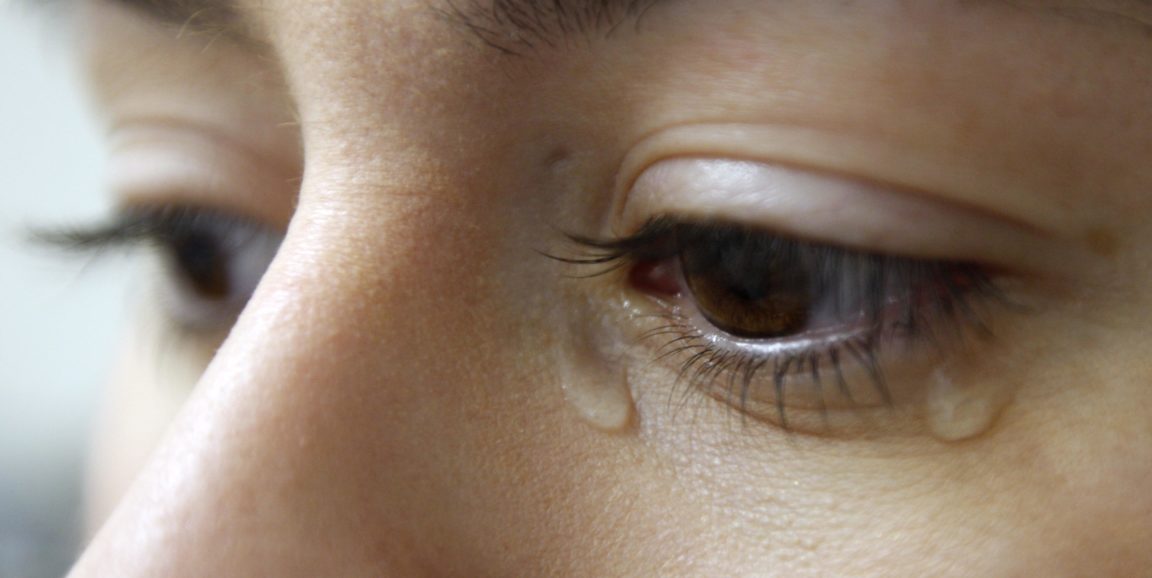I’m a default crier. I happy-cry, stress-cry, romantic-comedy-cry, regular-comedy-cry and, apparently, I even doctor-in-training-cry.
Crying is a tough response, especially for someone who wants to take care of sick patients. My default reaction poses challenges for my future career. I had my first taste of this when a patient actor brought me to tears. An actor? That's ridiculous, you might think. It was all pretend and yet, I broke down. I’m a soft person, but it wasn’t a soft cry. I’m talking deep heaves, snot running, mascara smeared on my glasses.
The actor’s role was to be a difficult patient, to pick on first-year medical students and throw us off our recently established clinical game. I was prepared. I had read the assigned articles about redirecting “difficult patient encounters” and had gotten a good night’s sleep.
“Oh jeez, not another woman,” the patient said as I entered.
“Hi, are you Mr. Jones?” I asked in my friendly, tempered clinical tone.
“Are you the doctor?” he spat.
“No, I’m Orly Farber. I’m a first-year medical student and part of your care team —”
“You’re a medical student!” he interrupted, “And a woman? I want to see the real doctor. A male doctor!”
And so it went.
For a few minutes, I handled the case with about as much professionalism and composure as I could muster. I told him he could see the doctor after I collected some more information, but I couldn’t promise that the doctor would be a man. He got agitated, raised his voice, and refused to answer my questions. I stayed calm. Then he pointed to my shoes.
“Look at you,” he sneered, “wearing your stupid shiny penny loafers. You’ve probably never experienced a day of struggle in your life. How could you possibly understand my pain?”
“Sir, I wouldn’t make any assumptions,” I replied sternly, “I’m just here to listen and learn about your pain...” My voice quivered, the prodrome to my tears.
I turned to the advisor observing me and asked for a timeout; she nodded. I looked at my classmates, who were also watching the encounter, their eyebrows raised to the ceiling. “How’s it going?” my advisor said, “Are you feeling okay?”
And like every time someone asks if I’m okay, like after tripping in public or receiving some bad news, I cracked. Hard.
For me, crying is a positive feedback loop: I cry because I’m sad or stressed or scared. And then, after a few seconds, I cry because I’m crying — because I’m embarrassed or feel weak or wish I could respond in any other way.
That day, I cried because a patient actor yelled at me. He challenged my place in medicine as a woman and more so, he doubted my ability to empathize, a trait I proudly wear on my sleeve. And then, when the initial tears had been shed, I cried out of shame, for having lost my cool in public, in front of my classmates and professors, in front of an actor with fake grievances.
I don’t yet know how to manage my emotionality in a clinical space. I want to be soft, but not too soft. I want to maintain my compassion, without losing my composure. And so I hope that going forward I learn how to handle my tears, not just how to redirect a “difficult encounter,” but how to redirect my own reactions. I hope that the next time a patient insults my favorite penny loafers or questions my place in medicine and my expertise, I won’t burst into tears. Instead, I’ll stoically face him and say, “Sir, these loafers have saved lives.”
Stanford Medicine Unplugged is a forum for students to chronicle their experiences in medical school. The student-penned entries appear on Scope once a week during the academic year; the entire blog series can be found in the Stanford Medicine Unplugged category.
Orly Farber is a first-year medical student from Washington D.C. She graduated from UChicago in 2015 and spent the following two years in an allergy lab at the National Institutes of Health. While Orly’s heart remains in Chicago, her body is thrilled to be in the Bay Area! She loves running, hiking, rock climbing, baking bread, and tending to her plants — fully embracing the West Coast lifestyle.
Photo by Wikimedia Commons




